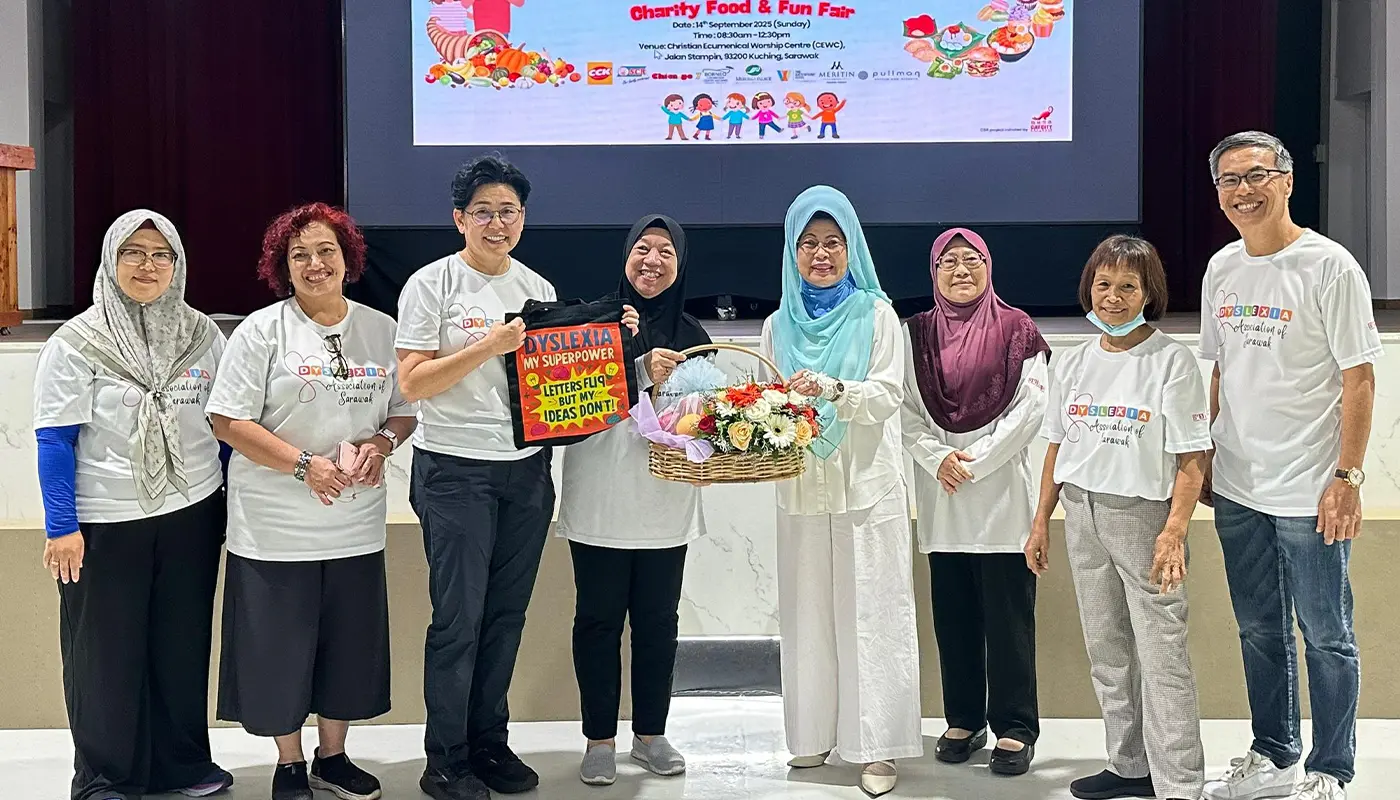KUCHING – A significant shift in understanding dyslexia is taking place across Sarawak, as educators and communities move away from mislabelling affected students as disruptive or disobedient.
Previously, children struggling with reading and writing were often disciplined for behaviours rooted in undiagnosed learning differences.
Sarawak Women, Children and Community Wellbeing Minister Dato Sri Fatimah Abdullah highlighted this transformation during the opening of the Dyslexia Charity Food and Fair 2025 in Kuching on Sunday.
She noted that societal ignorance once led to punitive responses, when what these students needed was targeted support and empathy.
“Many did not understand dyslexia,” she said. “Children were punished for being ‘naughty’ when, in reality, they were battling challenges in literacy and self-esteem.”
Thanks to sustained advocacy by the Sarawak Dyslexia Association, awareness has deepened among parents, teachers, and the public.
More schools are now implementing inclusive practices, and early identification efforts are becoming standard.
Fatimah commended educators and volunteers who dedicate their time to nurturing dyslexic learners, enabling them to express themselves through art, performance, and tailored academic programs.
These initiatives, she added, empower students to recognize their strengths beyond traditional benchmarks.
The growing recognition of neurodiversity reflects a broader cultural shift toward compassion and equity in education, one that ensures no child is left behind because their brain learns differently.






